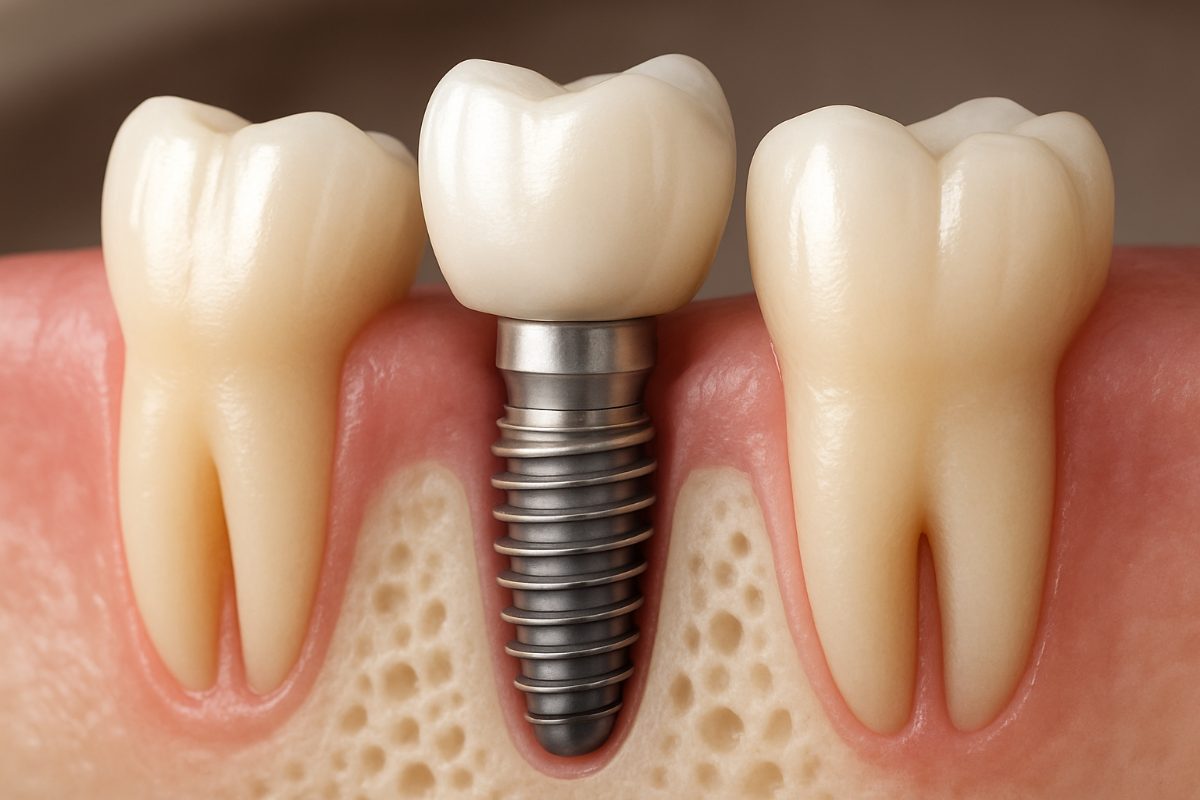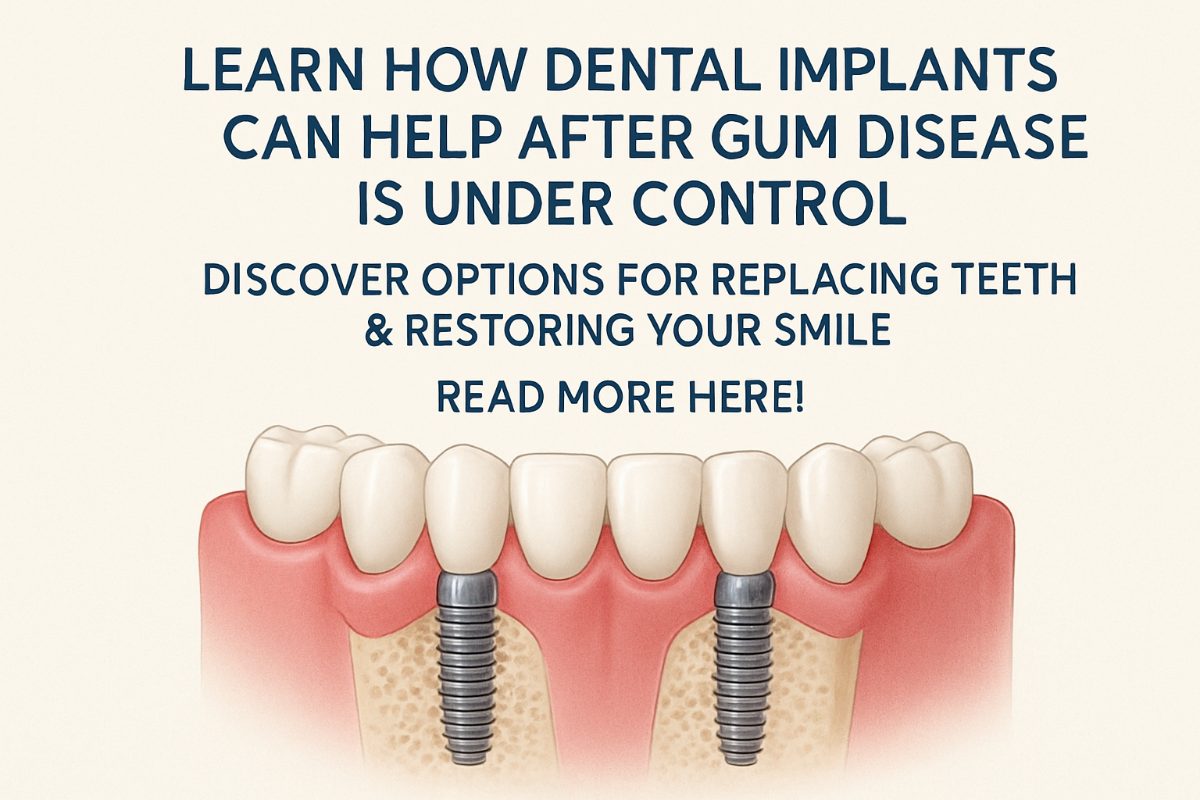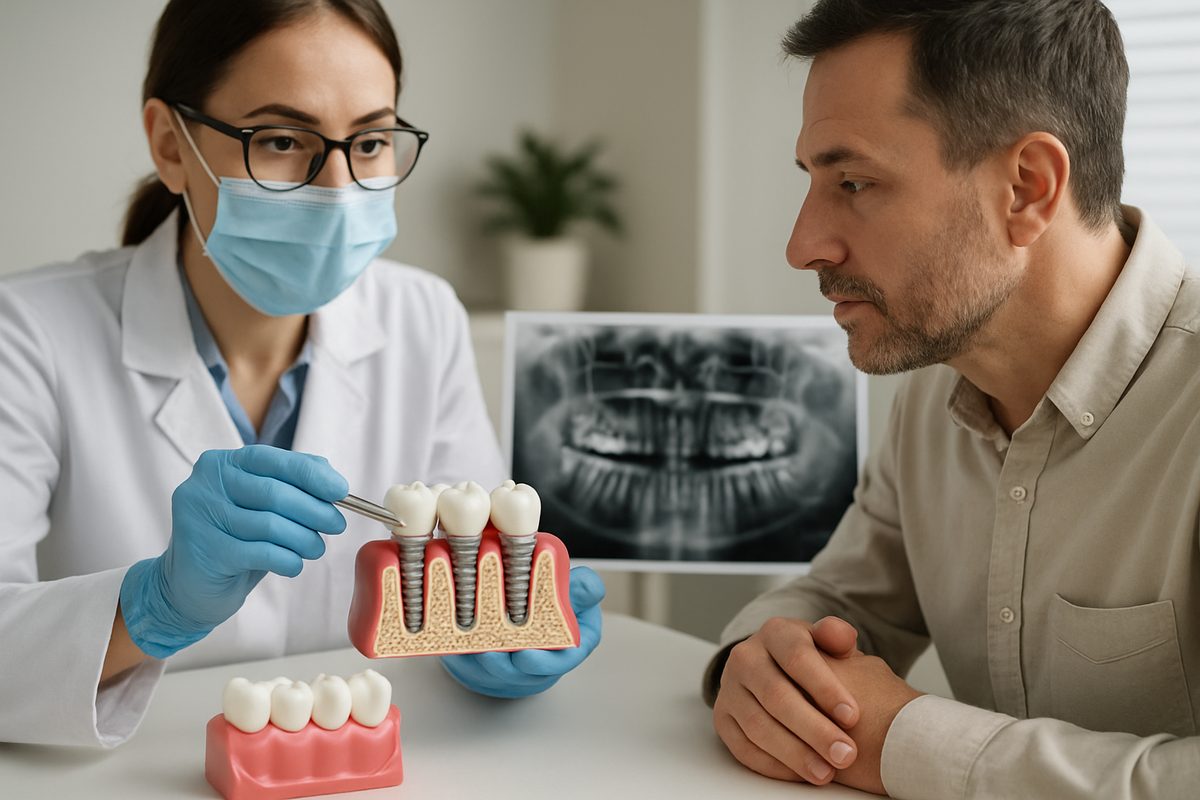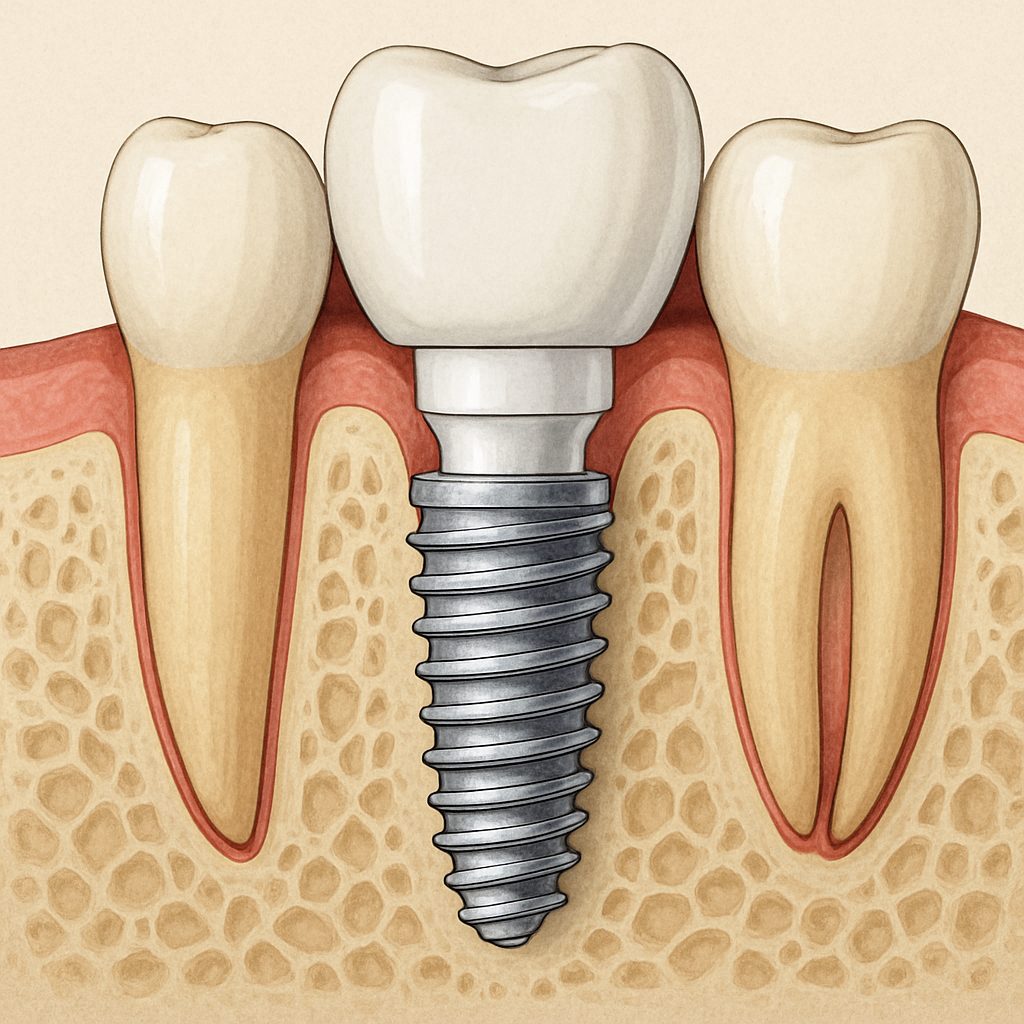Oral Surgery Blog - Statesboro & Swainsboro, GA
Tips, Facts, And The
Latest In Dentistry

Dental Implants For Full Dentures: Are They Right For You?
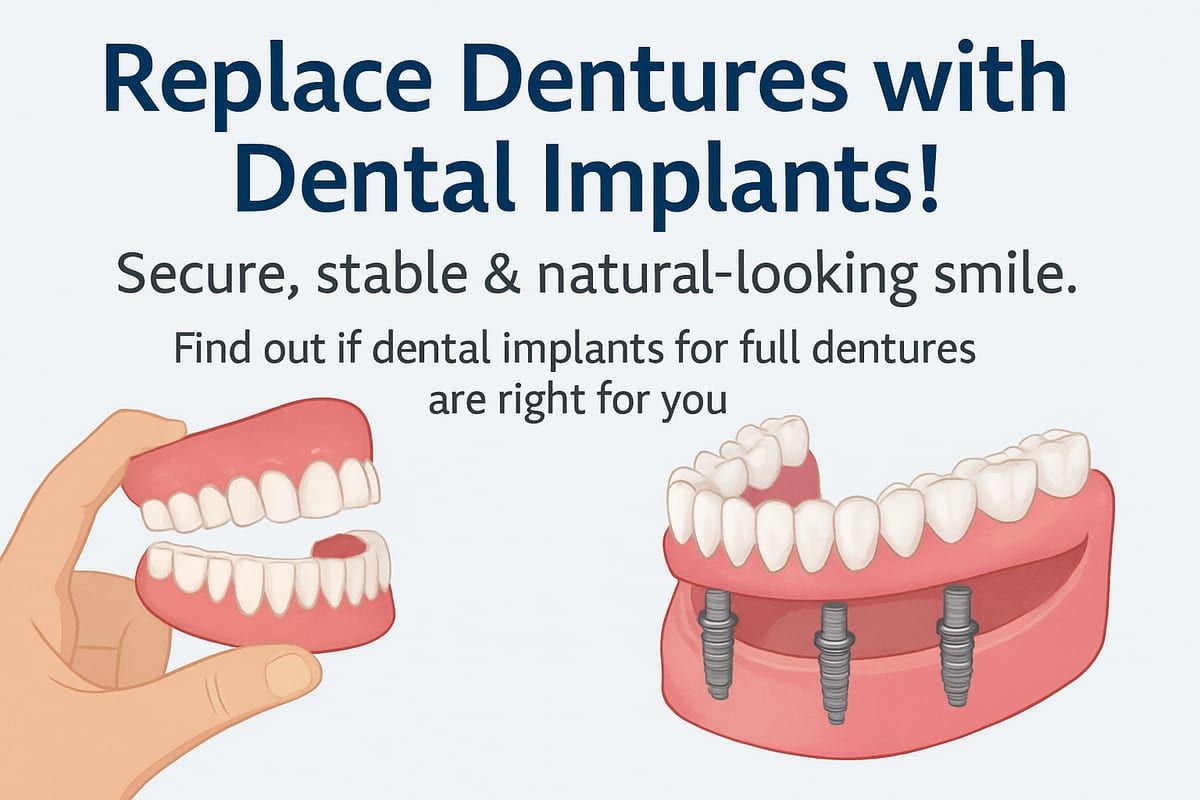
Many people tired of loose, uncomfortable dentures want a stronger, more natural-feeling option. This article explains dental implants for full dentures, who benefits, the main pros and cons, and practical next steps if you want a long-term solution for missing teeth. It’s written for anyone who struggles with slipping dentures, limited diet, or low confidence from tooth loss.
What are dental implants for full dentures?
Dental implants for full dentures use titanium posts placed in the jaw to anchor a full arch of teeth. There are two common approaches:
- Implant-retained overdentures: A removable denture snaps onto two to four implants for better hold but can be taken out for cleaning.
- Fixed (hybrid) full-arch restorations: Also called All-on-4 style, these attach permanently to four or more implants and are not removed daily.
Key benefits compared to traditional dentures
Stability and chewing power
Implants stop dentures from slipping. That means you can eat foods you may have avoided, like apples or steak, with more confidence and less pain.
Bone preservation and oral health
Implants stimulate the jawbone the way natural tooth roots do. This slows bone loss and helps keep your facial shape, unlike removable dentures that can speed bone loss over time.
Comfort, speech, and quality of life
Implant-supported dentures reduce gum rubbing and sore spots. Speech tends to be clearer, and many people report higher self-esteem and better daily comfort.
Who is a good candidate for dental implants for full dentures?
Bone volume and gum health
Good bone volume and healthy gums help ensure implants fuse properly. If bone is thin, a dentist may recommend bone grafting first. Healthy gums reduce infection risk and improve long-term success.
Medical conditions and lifestyle factors
Certain conditions and habits affect candidacy. Common concerns include:
- Poorly controlled diabetes
- Heavy smoking
- Medications that affect bone healing (ask your dentist or doctor)
Expectations and commitment
Implants take time and several visits. You must commit to healing time, follow-up care, and daily cleaning. This option is best for people ready for a long-term investment in their oral health.
What to expect: process, timeline, costs, and next steps
Treatment steps and timeline
Typical steps include:
- Consultation and dental imaging (CT scan or X-rays)
- Planning and, if needed, preparatory treatments (extractions, grafts)
- Implant placement surgery
- Healing period (usually a few months for osseointegration)
- Attachment of the denture or fixed arch
Some patients receive a temporary denture the same day as implant placement for immediate function.
Recovery and maintenance
Initial healing usually takes a few days to a week for soft tissue, with longer for bone to integrate. Expect follow-up visits and cleanings. Daily care includes brushing, flossing or interdental cleaning, and regular dental checkups. Avoid hard or sticky foods during early healing.
Costs and financing options
Costs vary by type (overdenture vs fixed arch), number of implants, and whether extra procedures are needed. Many practices offer payment plans, third-party financing, or work with dental insurance to help spread costs. Ask for an itemized estimate during your consultation.
How to learn if dental implants for full dentures are right for you
The best way to know is a personalized consultation with a dentist who evaluates your mouth, health history, and goals. During the visit you’ll get imaging, a clear treatment plan, and a cost estimate. If you’re ready to explore implant options, schedule a consultation with our team to discuss your needs and next steps.


